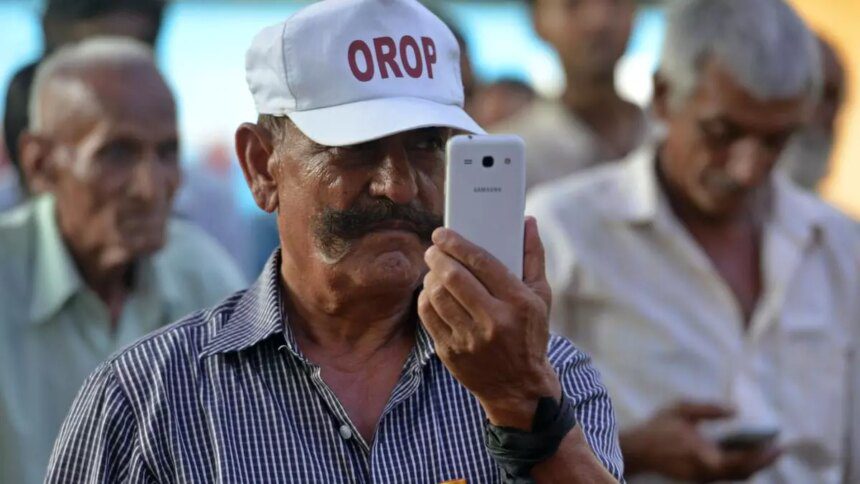In a significant ruling promoting pension equity, the Armed Forces Tribunal (AFT) has mandated the central government to implement the One Rank One Pension (OROP) scheme for members of the tri-services who opted for premature retirement (PMR) after July 1, 2014. The Double Bench determined that their exclusion from these benefits is “discriminatory” and violates Article 14 of the Constitution.
A group of 114 Indian Navy officers, primarily holding the rank of Commander, had approached the AFT to contest the government’s decision not to include them under the OROP framework established by the pension policy implemented on November 7, 2015.
OROP guarantees that armed forces personnel retiring in the same rank and with the same length of service receive equal pensions, regardless of when they retired. Any future increases in pension rates will automatically benefit all prior pensioners according to the OROP formula.
In their ruling dated January 31, the AFT Double Bench, led by Chairperson Justice Rajendra Menon and Member (A) Rear Admiral Dhiren Vig, deemed paragraph 4 of the OROP policy as “discriminatory, unsustainable in law, and in violation of Article 14 of the Constitution.” Justice Menon stated, “We strike it down and direct that PMR personnel be uniformly granted the OROP benefit, ensuring no discrimination in the application of the policy.”
The Tribunal categorized the PMRs into three groups. The first consists of personnel who opted for PMR before July 1, 2014. The second includes those who retired between July 1, 2014, and November 6, 2015. The third group is made up of personnel who retired after the OROP policy was announced on November 7, 2015. The last two categories were excluded from the OROP benefits by the government, which created unjust distinctions not present in the original pension notification dated July 1, 2015, as highlighted by counsel SS Pandey, representing the Navy officers.
Advocating for the petitioners, Pandey argued that the government’s actions were an attempt to create “a class within a class.” He indicated that over 25,000 officers from the Indian Navy, Indian Army, and Indian Air Force could benefit from this ruling.
Although a judicial commission was set up to investigate disparities in pension policies, it overlooked this critical issue affecting service members who retired at the same rank and with equivalent service tenure but were receiving differing pensions. The AFT noted, “The respondents have failed to provide any reasonable rationale or justification for denying OROP benefits to personnel who retired after the cut-off date of July 1, 2014.”
The Tribunal also criticized the government’s establishment of different PMR categories, asserting that this contravenes established legal principles from Supreme Court precedents, specifically in the landmark case of DS Nakara.
The AFT dismissed the government’s argument that the grievance raised falls within the realm of administrative and policy matters, thus exempt from judicial scrutiny. Justice Menon asserted that even if the government exercises its statutory or executive power, such policies must comply with Articles 14 and 16 of the Constitution. The Tribunal emphasized that the Supreme Court has frequently intervened in policy matters to rectify discrimination among similarly situated individuals and groups, thus justifying its decision to overturn the government’s stance.










